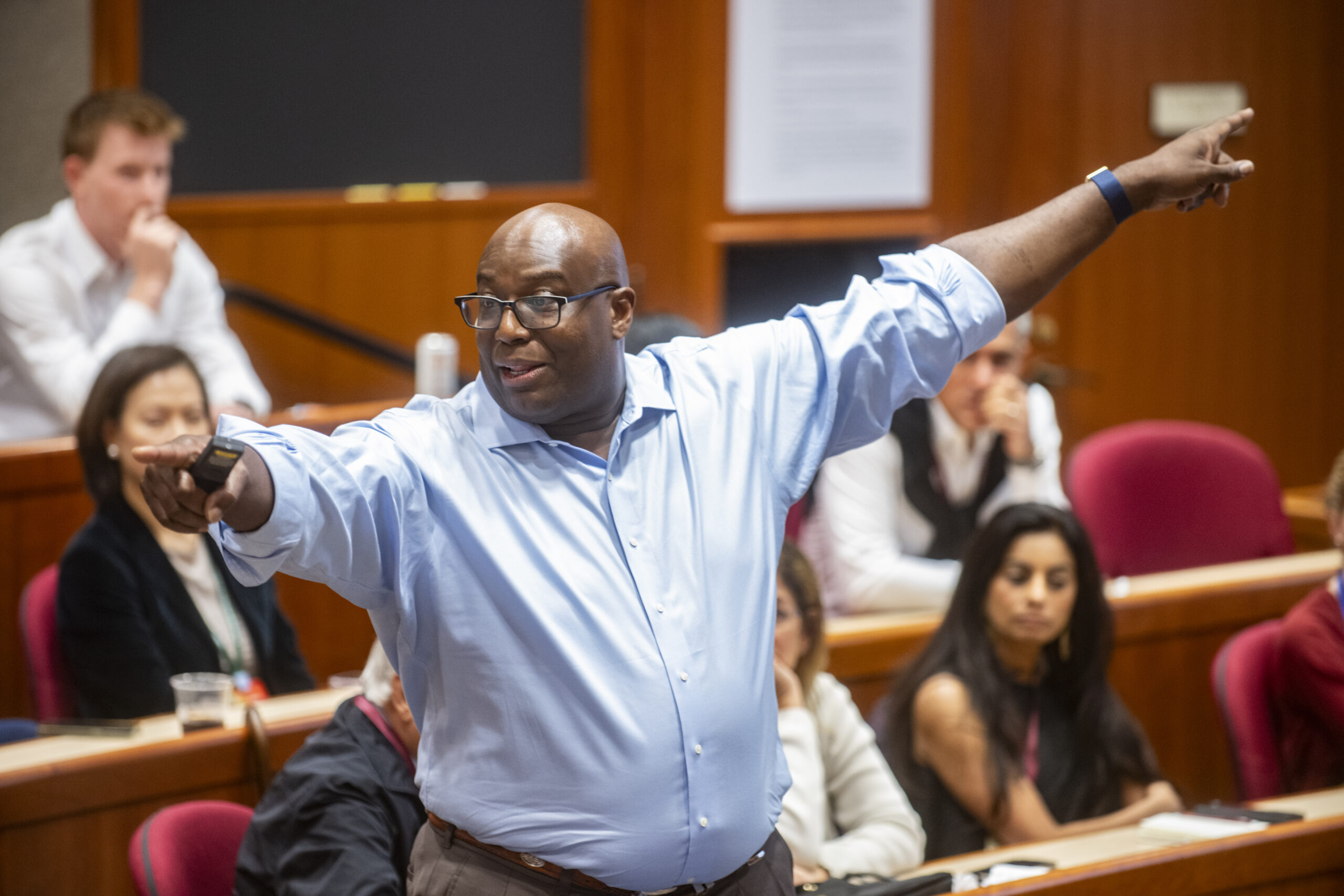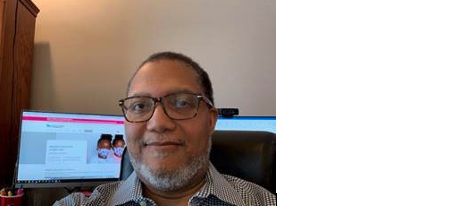

This post is part of our “Leadership in Challenging Times” blog series, which highlights the inspiring work of the HBS community in addressing the health and economic consequences of COVID-19, alongside the fight for racial equity and an especially polarized political climate. In this post, Calvin Allen (MBA 1996) discusses his work with the Children’s Hospital of Philadelphia and how he has navigated the many challenges of the past year.
Tell us about your work
I’m responsible for Human Resources at Children’s Hospital of Philadelphia (CHOP), which is the first hospital in the country dedicated exclusively to children. It was started in 1855 and has been a leader in pediatric healthcare ever since. We lead with research, and we proactively look for cures for chronic and fatal pediatric illnesses. We deliver family-centered care by starting with the child and working out to include the entire family. Finally, as an educational institution, we serve as a training ground for future pediatric leaders. We have a workforce of about 22,000.
How has your organization and your role responded to this year’s challenges?
CHOP has weathered the storms of 2020 better than most. COVID has had a significant impact on patient visits. This has required us to rethink process flows and the flexibility of our staffing models. We moved about 30% of our workforce to working from home – almost overnight. In order to avoid any COVID-related layoffs, we held on hiring most positions, unless they were hard-to-fill roles. We also created a Talent Marketplace, which allowed us to redeploy staff to areas of greatest need, e.g., our Contact Tracing Center. While the impact of COVID on kids has been less severe than on adults, we have partnered with the city and state to support adult hospitals, the Philadelphia public schools and our community.
The racial tensions sparked by the deaths of George Floyd and Breonna Taylor clearly impacted the Philadelphia community and thus impacted our workforce. We’ve worked hard to increase transparent and open conversations about race, bias and equity. These conversations are rarely easy, but we are equipping our leaders to engage – not turn away. The racial challenges in our country are clearly not isolated to our staff of color; all of our teams have been impacted in some way. The challenges that occur in our community absolutely influence how we show up at work. That’s why it’s important to connect, build relationships and have support systems. I’ve been energized by how all communities are coming together to combat systemic racism. One of my favorite quotes is by Dr. Martin Luther King, Jr. He said “injustice anywhere, is a threat to justice everywhere.” There’s work to do. It starts with listening and being open to learning from one another. It also means we must assess our processes to drive improvement.
And then we had an incredibly divisive presidential election. This might have been one of our most difficult issues. We’re not in the business of politics, nor taking sides. We’re in the business of creating breakthroughs for kids. Our nation has been divided on where to go and how to get there. Our organization has many different people with different backgrounds and experiences. Our focus was on 1) continuing to put children first; 2) emphasizing that dialogue is good as long as it is respectful and aligns with our values; and 3) encouraging people to vote. It might seem simple, but when you’re in the middle of it – with rising racial tensions and an escalating pandemic – nothing is easy or simple or clear.
What lessons have you learned for going forward? In what ways will this change your work forever?
We’ll never go back to the pre-COVID lifestyle, from a work and space design perspective. While we were designing strategies to accelerate work-from-home options, we had to learn really fast how to do it well. It was the same transition that most other organizations went through. I’ve learned that we can be productive and efficient in any environment, because our teams are dedicated, tenacious and committed to children’s health. It was just another reminder for me of how strong our teams are. We stayed centered on what’s most important, the “why we do what we do.”
What has inspired you to keep going during these difficult months?
My kids. They’ve been through a lot over the last two years. We made the move from Minneapolis/St. Paul in the middle of the school year, and they had to create new relationships. A year later, they are no longer able to easily maintain those relationships. My 17-year-old son has been at three schools in nine months. My 12-year-old daughter has had to learn words like pandemic, unrest, disparities and unprecedented. It hasn’t been easy, but working from home has allowed me to connect with them, and my wife, more than before. Even if it’s something as simple as grabbing a snack at the same time, these opportunities to connect with those closest to me have been invaluable.
How can someone interested in this area get involved or learn more?
CHOP’s website, chop.edu, is a great resource for anyone who would like to learn more about the hospital, our teams and our research.